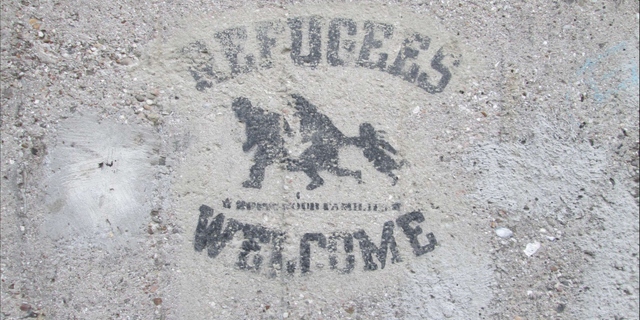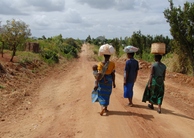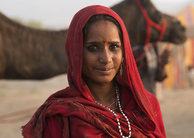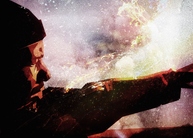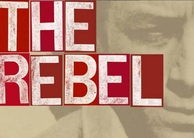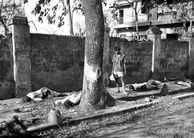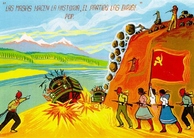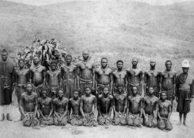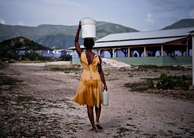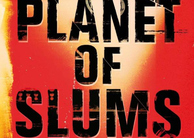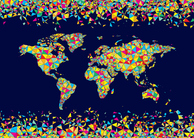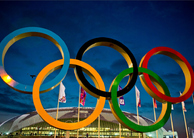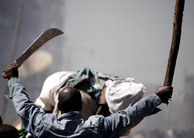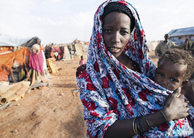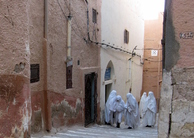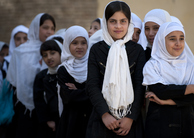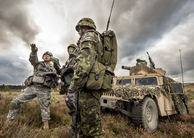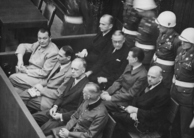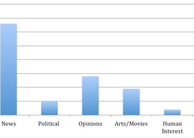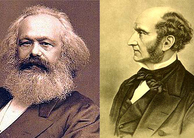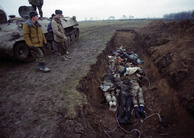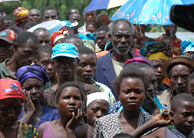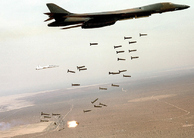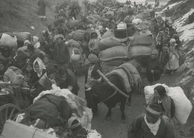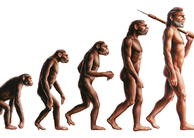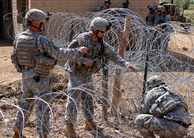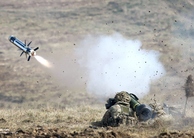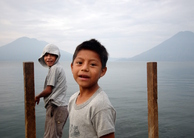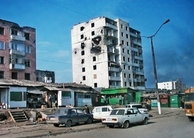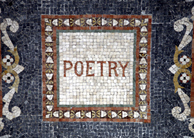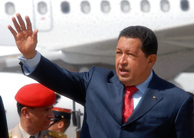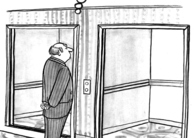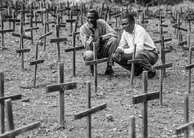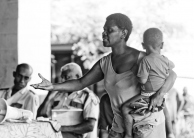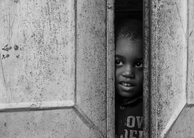|
Human (tagged articles)
The keyword Human is tagged in the following 100 articles.
2021, Vol. 13 No. 12
This paper discusses the structural violence experienced by lesbian, gay, bisexual, trans, intersex, or queer (LGBTIQ+) people and people with disabilities (PWD), and reviews the international Human rights protections available to each group through... Read Article »
2021, Vol. 13 No. 11
Cast in one piece of bronze in 1554, Benvenuto Cellini'sPerseus with the Head of Medusa representeda monumental feat of artisticvirtuosity. Viewers marvelled at the imposing size of the bronze, the sense of liquid tactility in the blood pouring... Read Article »
2021, Vol. 13 No. 06
This research study explores factors that present barriers to reporting workplace incidents and contribute to cultures of non-report. The research purpose was to explore Human, workplace/organizational, and external factors identified by industrial... Read Article »
2021, Vol. 13 No. 02
During the 2015 refugee crisis Chancellor Angela Merkel allowed refugees to enter Germany in unprecedented numbers. Her historic decision to adapt the so-called “open-door policy” continues to shape contemporary German politics. More... Read Article »
2020, Vol. 12 No. 12
Genocide Memorialization focuses on the community after a genocide in what they choose to remember and how they achieve that goal of memorialization. Memorialization efforts are museums, institutions, policy, law, education, documentaries and first... Read Article »
2020, Vol. 12 No. 11
Many natural history museums use the categories of “cultural” and “natural” as a means of separating exhibition content. This article challenges this practice and the inherent paradigm that supports it. By dismissing the... Read Article »
2020, Vol. 12 No. 09
Of the thousands of potential cases that could have been investigated by the International Criminal Court (ICC), only 44 individuals have been indicted, with 45 cases currently before the ICC. Further, only 14 out of the 45 have resulted in a complete... Read Article »
2020, Vol. 12 No. 09
The necessity of international relief is unending as new crises continue to emerge across the world. International aid plays a crucial role in shaping how affected communities rebuild after a crisis. However, Humanitarian aid often results in a... Read Article »
2020, Vol. 12 No. 09
Drawing on Jasbir Puar’s analysis of homonationalism in the post-9/11 United States, I investigate the Orientalist and Islamophobic discourses present in liberal and LGBTQ news articles and Human rights reports responding to the release of... Read Article »
2019, Vol. 11 No. 02
In recent years, climate change has been increasingly framed as a security issue, with some theorists going so far as to call it the most important security issue of the 21st century. This paper will examine the relationship between climate change... Read Article »
2019, Vol. 11 No. 02
The discussion of 'women's rights' is often subsumed into the broader consideration of ' Human rights,' but when it comes to understanding the experiences of the world's most vulnerable people — refugees — the issue of gender cannot be... Read Article »
2017, Vol. 9 No. 11
Domestic violence in India poses an interesting paradox: in addition to being the most ubiquitous of basic Human rights violations, it is also the least reported and discussed. The tightly patriarchal norms and structure of traditional Indian culture... Read Article »
2017, Vol. 9 No. 05
Is it possible to objectively define the Anthropocene? This essay argues that whether or not it is precisely definable as a geological epoch, its true value, as a concept grounded in futurity, lies within the social realm. The origins of the term... Read Article »
2017, Vol. 10 No. 2
In recent decades, Japan and South Korea have become hosts to ethnic return migrants who have returned to their ancestral homeland after once emigrating overseas. Since the 1980s, the Brazilian nikkeijin, or members of the Japanese diaspora, have... Read Article »
2017, Vol. 9 No. 05
This article explores the role that the Responsibility to Protect (R2P) played in the 2011 intervention in Libya. It examines the R2P legal framework in coordination with events on the ground in Libya during the early part of 2011 in order to thoroughly... Read Article »
2017, Vol. 9 No. 05
Albert Camus lived during a tumultuous time that included his experience of World War II and the Algerian War. Camus is most prominently known as an author of fine French literature but he was also a philosopher. While it is debatable whether Camus... Read Article »
2017, Vol. 9 No. 04
Man in his search for meaning—everyman— is Albert Camus’ rebel. In The Rebel man must accept and seek to encounter the universe as it presents itself in absurdity. He encounters the universe out of a strange love and a need for... Read Article »
2017, Vol. 9 No. 03
This article argues that performance enhancing drugs (PEDs) ought to be allowed across all elite sporting competitions for athletes over the age of 16 so long as consuming them does not pose a significant risk to their health. I begin with a brief... Read Article »
2017, Vol. 9 No. 03
World War II ranks among the deadliest military conflicts in history. From 1939-1945, the estimated number of casualties worldwide exceeded 60 million.[1] The United States suffered military fatalities in excess of four hundred thousand, and the... Read Article »
2017, Vol. 9 No. 02
The Peruvian Communist Party (PCP) was founded as the Peruvian Socialist Party in 1928 by José Carlos Mariátegui after his analysis of the “semifeudal” Peruvian economic state, which did not strictly follow Marx’s... Read Article »
2016, Vol. 8 No. 12
Ever since its elimination from the list of mental illnesses in 2001, and decriminalization in 1997, homosexuality in China continues to be at the forefront of China’s growing Human rights debate. The estimated 40 million lesbian, gay, bisexual... Read Article »
2016, Vol. 8 No. 12
First language attrition (L1) studies are a comparably young and theoretically unspecified field of research in bilingualism. Young, because the first scientifically acclaimed, related article, Andersen’s “Determining the linguistic... Read Article »
2016, Vol. 8 No. 09
This paper is an attempt to navigate through existing theories of universalisation of Human rights and existing justifications thereof. It is premised on several cultural and political notions that it takes as starting points, not as truisms, but... Read Article »
2016, Vol. 8 No. 08
Two conflicting modes of living—happiness pursued obediently (Godly) versus happiness pursued disobediently (Satanic)—produce persistent problems with conceptions of free will in John Milton’s Paradise Lost. The Godly mode of happiness... Read Article »
2016, Vol. 8 No. 08
Often called the “prince of the Humanists” Erasmus of Rotterdam (1466-1536) was one of the most influential European philosophers and theologians of the early modern period. However, today he is often overshadowed by his more radical... Read Article »
2016, Vol. 8 No. 05
Our world has witnessed significant shifts, transformations, and evolution in government systems, the balance of power among nations, economics, the rights of men and women, and social structures and relationships over the past 500 years. However... Read Article »
2016, Vol. 8 No. 03
In 2014, the United Nations called for "a truly transformative agenda to follow the Millennium Development Goals." This study applies a critical qualitative discourse and textual analysis to examine the first priority of the agenda—to end... Read Article »
2016, Vol. 8 No. 02
Planet of Slums by Mike Davis (2006) is a startling, terrifying, and honest exposé of the world’s poorest big-city slum dwellers. The book explores the future of an unstable and impoverished urban world, and provides a thematic overview... Read Article »
2015, Vol. 7 No. 11
When speaking to a lay person, the concept of international justice may conjure a perception of impartiality rising above national interests and biases. This view lends itself naturally to the concept of cosmopolitan law, which David Held characterized... Read Article »
2015, Vol. 6 No. 2
Every two years, the global spotlight shines on the Olympics and the nation hosting the worldwide event, particularly the country's record on Human rights. This project looked at how two American newspapers, The New York Times and The Washington... Read Article »
2015, Vol. 7 No. 10
This paper address two overarching research questions: first, what is the role of religion in transitional justice? Second, does the religious approach to transitional justice differ from the secular approach, and if so, how? In a theoretical section... Read Article »
2015, Vol. 7 No. 09
Public relations is a growing field in the United States (Botan, 1992, p. 149). This growth can be partially explained by the fact that public relations is an exercise in power (Curtin & Gaither, 2007, p. 235; Walker, 2006, p. 401). Throughout... Read Article »
2015, Vol. 7 No. 08
“Not all silences are equal,” writes Michel-Rolph Trouillot (1997, p.27). Not everyone, I add, possesses the power to silence a person or a group of people. In this research paper, I use gender as an analytical tool to examine the way... Read Article »
2015, Vol. 7 No. 06
In his work The Idea of History, philosopher and historian Robin Collingwood outlines the development of historiography by leading his audience on a European cross-continental journey through time. He identifies the early modern period as a point... Read Article »
2015, Vol. 6 No. 1
This study focused on why the act of taking selfies and posting them to the Internet is a factor leading to an increase in narcissistic and selfish behaviors. This study examined whether the Millennial Generation believes the selfie phenomenon is... Read Article »
2015, Vol. 11 No. 2
The level of gender violence against native women in the United States has reached epidemic proportions. Furthermore, the vast majority of Native American gender violence victims are abused at the hands of non-native men. Native American tribes... Read Article »
2015, Vol. 8 No. 2
Colombia has had the longest internal armed conflict in the Western Hemisphere, which has delayed the development of a true democratic system where the government protects individual rights and liberties [1]. The prolonged conflict is a consequence... Read Article »
2015, Vol. 7 No. 03
Violence against women has recently become well recognized as a violation of Human rights that holds worldwide significance. Unfortunately, violence against women outside of North America has gone largely unnoticed among the academic community and... Read Article »
2015, Vol. 2014/2015 No. 1
At present, ‘more than 80 percent of Afghan women are illiterate’.1 However, in the rural regions of Afghanistan, where more than 74 percent of the population lives, the illiteracy rate of females is closer to 93 percent.2 Following... Read Article »
2014, Vol. 6 No. 11
Human rights protection in Europe evolved significantly over the last century, culminating in the creation of the European Court of Human Rights. Unfortunately, the decisions made by the European Court of Human Rights are not binding and do not... Read Article »
2014, Vol. 4 No. 2
The North American Treaty Organization (NATO) was founded at the outset of the Cold War and served as a collective defense alliance of states in North America and Western Europe against the Soviet bloc. However, following the end of the Cold War... Read Article »
2014, Vol. 4 No. 2
This paper investigates factors that contribute to the effectiveness of international economic sanctions. A review of existing literature on sanctions reveals that scholars of economic statecraft have largely neglected to consider two variables &... Read Article »
2014, Vol. 7 No. 2
The creation of the Nuremberg Court following World War II exemplified international cooperation, particularly between the Great Powers: the United States, France, the Soviet Union, and Great Britain. Expounding the benefits of justice and the rule... Read Article »
2014, Vol. 6 No. 03
This paper is about the numbing of man’s critical impulse brought about by consumer society, a society obsessed with speed, and is characterized by a constant consumption of products—of good things turning into goods, of culture with... Read Article »
2014, Vol. 6 No. 03
Questions concerning Human nature provoke controversy across disciplines, particularly when it comes to explaining evil or ‘immoral’ behaviors. Endeavors to explain actions that are considered immoral strike at a fundamental philosophical... Read Article »
2012, Vol. 3 No. 2
The sex trafficking industry poses a clear and present threat in society, but the American public seems to be unaware of the gravity of the issue within the U.S. Analyzing the agenda setting theory by focusing on stories on the New York Times and... Read Article »
2013, Vol. 5 No. 11
This essay compares Karl Marx’s and J.S. Mill’s understandings of freedom and their analyses of the impediments to its realization. First, this essay argues that the two philosophers share the same premise that progress is possible and... Read Article »
2013, Vol. 5 No. 08
Sitting at home reading one night, you come across the term “WikiLeaks.” Unaware of its meaning, you exhale forcefully, knowing what’s next. Donning a dark black hoodie, you walk out to the street and down to an abandoned alley... Read Article »
2013, Vol. 3 No. 1
While the enslavement of Humans has been occurring even before the dawn of written history, today's form of slavery occurs on an unprecedented scale in both scope and reach. This work attempts to understand the most vulnerable sectors of population... Read Article »
2013, Vol. 5 No. 04
This paper examines historical and contemporary instances wherein sexual violence, specifically rape, was used as a strategic weapon amid both traditional and tribal conflict, as well as in genocidal operations. It analyzes the cogency of sexual... Read Article »
2012, Vol. 4 No. 12
This study asks the question of why minorities are so overrepresented among the homeless, with a focus on the United States and Europe in a comparative perspective. I combine Charles Tilly’s theoretical model on how to challenge durable inequality... Read Article »
2012, Vol. 6 No. 1
With the recognition that sex workers constitute a key population at higher risk for the acquisition and dissemination of sexually transmitted infections (STIs) has come an appreciation of the central role that they might assume in policy solutions... Read Article »
2012, Vol. 6 No. 1
While states admit a moral responsibility to take action against states that violate Human rights and international criminal law, international law does not create any legally binding obligations on states to prevent or punish violators of Human... Read Article »
2012, Vol. 6 No. 1
In 1999, the Russian government all but razed Chechnya’s capital city of Groznyy. The Russian military devastated Chechnya, killing thousands of civilians and wiping out vital infrastructure, signifying the capstone in a campaign of destruction... Read Article »
2012, Vol. 4 No. 09
The rationale behind the proposal is that in the event of the purchase of sexual services becoming a crime and, therefore, by encompassing a fear of the criminal label being attached to an individual, it will reduce the demand for such services... Read Article »
2012, Vol. 4 No. 08
Experiments involving Human subjects are increasingly utilized in criminal justice research. However, these studies present relatively unaddressed ethical concerns. This article examines the dark history of Human experimentation on offenders and... Read Article »
2012, Vol. 4 No. 07
Equivalent parts biographical and theoretical, this paper provides a discussion of the main historical events and contributions of Viktor Frankl. Frankl's intellectual development began with a brief immersion in Freud and Alder’s teachings... Read Article »
2012, Vol. 5 No. 2
"I rape because of the need. After that I feel like a man." These are the words of a rebel soldier who ruthlessly roams the forests of the Democratic Republic of Congo (DRC) in search of his next victims. Rape has been used in the past during warfare... Read Article »
2012, Vol. 5 No. 2
The rise and entry into force of the 2008 Convention on Cluster Munitions (CCM) that prohibits cluster bombs constitutes a global prohibition regime. I argue that this new prohibition regime and the arising new international norm set by the CCM,... Read Article »
2012, Vol. 2011/2012 No. 2
The strict regulations for immigration fuels the smuggling of irregular migrants, however, amongst the irregular migrants are genuine asylum seekers in search of protection. If party to the Convention Relating to the Status of Refugees,1 States... Read Article »
2011, Vol. 3 No. 10
On November 21, 1945, Robert H. Jackson, the Chief Prosecutor for the United States of America opened the prosecution’s case against German defendants in Nuremberg, Germany. The war in Europe had ended only six months earlier, many of the... Read Article »
2011, Vol. 3 No. 09
Stephen Mitchell’s interpretation of the 3500 year old Sumerian epic, Gilgamesh, offers valuable lessons behind its monster-slaying, glory-seeking adventures. One such lesson explores the relationship between extremes and balance. Gilgamesh... Read Article »
2011, Vol. 3 No. 08
As technology progresses, the rift between organic and mechanic is increasingly made more obscure. This leads one to then ask whether the corporeal body is perhaps out-dated. Is the Human corporeal body “obsolete”? An artistic framework... Read Article »
2011, Vol. 3 No. 07
Traditionally, Human beings and tools are thought to be in a simple relationship with one another. All agency is located in the person, consequently making the Human being the sole object of power which acts on its subject, the tool. As we move... Read Article »
2011, Vol. 3 No. 06
“The Worst Mistake in the History of the Human Race” is the embodiment of anti-progressivist theory. Jared Diamond challenges the claim “that Human history over the past million years has been a long tale of progress,” with... Read Article »
2011, Vol. 3 No. 04
The problems associated with democratic reform in the Democratic Republic of the Congo (DRC) are manifold. While the name of the country surely lends itself to an assumption of regime type, in actuality, this area has experienced great civil unrest... Read Article »
2011, Vol. 4 No. 2
Recently, earthquakes in Haiti, Chile and New Zealand, mudslides in Brazil, a catastrophic oil spill in the Gulf of Mexico, the fallout from the fiscal crisis in Greece, and refugee flows out of Libya have highlighted the continued relevance of... Read Article »
2011, Vol. 3 No. 04
International Humanitarian Law, based on the concepts of jus ad bello, is defined to be the law of war. This means that the laws involved are meant to be active in a situation of an armed conflict or during war. However, just like international... Read Article »
2011, Vol. 3 No. 03
In the aftermath of mass violence and terror, nations are left in a state of disillusionment, fear, and often a lack of state legitimacy. In this atmosphere many nations have resorted to using different forms of reconciliation and peace-building... Read Article »
2011, Vol. 3 No. 02
It is universally accepted that a poem, at least a “good” poem, should be able to stand by itself, to be able to strike a chord with its audience, whether this impact is immediate or more subtle and gradual. However, even the best-written... Read Article »
2011, Vol. 3 No. 02
The Republic of Chechnya in Russia’s North Caucasus region has drawn significant attention for being host to remarkable instability, thriving terrorism, and a staggering display of Human rights violations over the past two decades, including... Read Article »
2011, Vol. 3 No. 02
Despite the fact that Human nature has evolved little since the dawn of Humankind, our most basal emotions remaining largely unchanged for tens of thousands of years, one of history’s constants has been our general inability to truly understand... Read Article »
2011, Vol. 3 No. 01
“ Human security means protecting vital freedoms. It means protecting people from critical and pervasive threats and situations, building on their strengths and aspirations. It also means creating systems that give people the building blocks... Read Article »
2010, Vol. 2 No. 12
In his seminal text, Leviathan, the philosopher Thomas Hobbes offers what was then a radically novel conception of the origins of civil government. Hobbes’ ideas of the commonwealth are predicated upon his views of Human nature and the state... Read Article »
2010, Vol. 2 No. 09
The limitlessly varied personalities of Human beings have fascinated both scientists and fellow members of society throughout the existence of Humankind. Of particular interest has been what happens when man’s mind turns against him, and what... Read Article »
2010, Vol. 2 No. 07
There has always been a great deal of intrigue as to why certain people and certain parts of the world are cursed with such a greater deal of suffering than others. Over time certain societies have developed through a series of phases of modernity... Read Article »
2010, Vol. 2 No. 05
For most Americans, 9/11 represents a turning point for our country. It is the beginning of a new chapter in our relations to the world and how we view our place in it. It is the beginning of a chapter where the American commitment to Human rights... Read Article »
2010, Vol. 2 No. 04
The year 1993 was not a good one for Bill Clinton. An exception, perhaps, being the morning of January 20th when he stood at the west front of the United States Capitol building and took the Oath of Office to become the forty- second President of... Read Article »
2010, Vol. 3 No. 2
The past sixty years witnessed a global proliferation of international courts and tribunals of almost all sizes and purposes. Today, they play important roles in international governance by handing down decisions in compelling areas ranging from... Read Article »
2010, Vol. 3 No. 2
Human trafficking is a global issue that is only recently being recognized with global action. The United Nations' Protocol to Prevent, Suppress and Punish Trafficking in Persons, Especially Women and Children (UNTIP), the first global initiative... Read Article »
2010, Vol. 2 No. 03
“ Human rights” is a concept so deeply intertwined into the modern discourse that it seems almost impossible to question it or refer to any standard beyond it. The problematic nature of this issue is not so much that people have different... Read Article »
2010, Vol. 2 No. 03
The United Nations states that at its broadest, Corporate Social Responsibility (CSR) can be defined as the overall contribution of business to sustainable development (UNDESA, 2007). That being said, unmonitored corporate social responsibility... Read Article »
2010, Vol. 2 No. 02
Every day, people are inundated with decisions, big and small. Understanding how people arrive at their choices is an area of cognitive psychology that has received attention. Theories have been generated to explain how people make decisions, and... Read Article »
2010, Vol. 2 No. 01
As medical and biological technology has progressed in recent years, concerns have been raised about the privacy implications of genetic records that can identify individuals and predict future conditions to which they are predisposed. According... Read Article »
2009, Vol. 1 No. 12
More than half a century ago, famed philosopher George Santayana observed, “Those who cannot remember the past are condemned to repeat it.” In the 20th century alone, the world bore witness to the Holocaust in Europe, as well as genocide... Read Article »
2009, Vol. 1 No. 12
An actor is on stage. He begins to speak, and as he does so the hearts of the audience wrench. The actor is pronouncing his love to a woman through song; or he is swearing revenge against the man who killed his father; or he is staring at the back... Read Article »
2009, Vol. 1 No. 12
“The genocide was a collective act. What made it possible, what made that final political crime possible was the absence, the erasure of seeing the other, of knowing, of feeling, of being with the other. And when that's removed, then politics... Read Article »
2009, Vol. 1 No. 12
What critical evolutionary events does the span of Human progression include? Anthropologists agree that decisive transitions such as sedentism, domestication, the use of language, and the arrival of culture and complex societies are associated... Read Article »
2009, Vol. 1 No. 11
Imagine the vast spectrum of all the cultures in the world. Listen to the music—from the gentle drum beats of Africa, to the melodic didgeridoo of Australia, to the scream of the electric guitar. Taste the curry from India, the coconut milk... Read Article »
2009, Vol. 1 No. 11
I like Kurt Vonnegut because he’s innovative and unique, his literary voice speaking out of a time period I love, when he “was actually helping to breathe life into a new genre—modern, pop fiction,”[1] according to critic... Read Article »
2009, Vol. 1 No. 11
It is important to note that information about Human rights abuses in Chile, as well as the exact details and full connections of its recent political history, are still in the process of being sifted through, made public, gathered, and organized... Read Article »
2009, Vol. 1 No. 11
“In London, Hamburg or San Francisco … we rarely see ordinary, middle-aged men and women flirting with homeless teenagers who sit on the pavements begging for spare change, or inviting them out to dinner and then back home to bed.&rdquo... Read Article »
2009, Vol. 3 No. 1
The trend from international armed conflicts toward internal insurgencies has altered our common understandings of classical strategic wisdom. While traditionally under the politics of imperialism, wars were settled with the winning state’... Read Article »
2009, Vol. 1 No. 10
At the time of the incident, I was living … in the bush, hiding from the war. One day, I had gone to the fields to collect some food to eat. As I was cultivating, I heard someone screaming loudly and the next minute armed men appeared in... Read Article »
2009, Vol. 1 No. 10
The Tenth Circle of Hell: A Memoir of Life in the Death Camps of Bosnia, written by Rezak Hukanovic, is one survivor’s account of his experience during the war in former Yugoslavia. In a chronological manner, Hukanovic details events that... Read Article »
2009, Vol. 2 No. 2
Two years ago, my mom handed me the article, "Below a Mountain of Wealth, a River of Waste," from The New York Times, describing Freeport-McMoRan's mining activities in Papua New Guinea. After reading "Below," I knew that the world had to change... Read Article »
2008, Vol. 1 No. 2
With mass atrocities ongoing in Darfur and past atrocities yet to be addressed, the question of how to achieve accountability for Human rights violations in the context of post-conflict society has never been a more pressing concern. But justice... Read Article »
1999, Vol. 1998/1999 No. 1
On October 16, twenty five years after he took power in the September 1973 coup, Augusto Pinochet was detained in London. This episode had produced a series of conjectures and strange turns amongst political circles. What we have to do with... Read Article »
1997, Vol. 1996/1997 No. 2
This article is based on a paper presented at the workshop on Understanding Security and Development in Africa, University of Wales, Aberystwyth, 8th March 1997. Let me begin by briefly explaining what NGOs are. NGOs are Non-Governmental Organisations... Read Article »
1997, Vol. 1996/1997 No. 2
Africa has been portrayed as the dark continent in need of civilising, and its heathen peoples in need of enlightenment through enslavement and colonisation. Africa has been presented as a continent in the difficult throes of trying to become... Read Article »
Expedited Article Review
Submit an article and get a decision fast.
If you need a fast decision, INQUIRIES Journal offers expedited processing of your submission for a small fee. Depending on the expedited review option you choose, you can receive a decision in as few as 5-days.
In addition to a shorter review period, the fee supports the journal's continued operation and open-access publishing model. Standard submissions are always free. Submit Now » - Submit an Article to Inquiries Journal -
|




